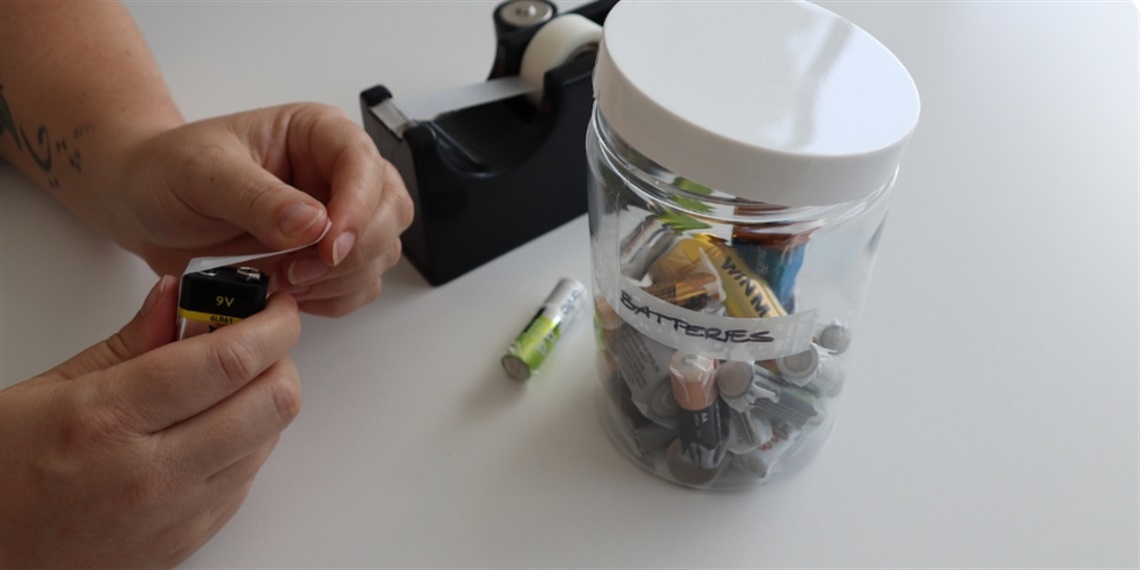Top tips for safely recycling old household batteries
Published on 18 March 2024

Did you know old household batteries cannot go in your kerbside bins? They can cause fires in your bins and in the trucks that collect them. They can also leak toxic substances into the environment.
Ninety-five percent of a battery's components are recyclable. By correctly recycling your old batteries, you can help manufacturers make the most of existing resources, so they rely less on mining new materials.
Here are some tips for safely recycling your old household batteries, including AA, AAA, C, D and 9V batteries.
When your household batteries no longer work or have expired
Tape each end of your old batteries using clear sticky tape. This prevents sparking and reduces the risk of fire.
Button batteries should be taped on all sides. This also acts as a safety measure if a child tries to swallow one.
Safely collect your old household batteries
Once they are taped, you can safely store your batteries before you drop them off at a recycling location by:
- Collecting taped batteries in a glass container.
- Avoiding using metal containers or storing batteries with metal objects.
- Making sure the container is not airtight.
- Keeping the container out of reach of children and pets and storing it in a cool, dry place before you drop your batteries off for recycling.
There are many drop-off points in Maroondah
You can recycle your old household batteries at drop-off points in Maroondah:
Transport your collected batteries in your glass container, empty the container, then take the container home with you. You can then use the container to collect more old batteries for recycling.
Remember, never drop off leaking or damaged batteries without approval from the drop-off point.
When you buy new batteries
You can observe battery safety when you are at the shops by:
- Avoiding low quality batteries and products, as they may pose safety risks.
- Only buying the required number of batteries and those in tamper-proof packaging.
- Only buying new devices that have sealed battery compartments or battery compartments that are tamper-proof.
Using and storing working batteries at home
Here are some easy ways to use and store working batteries safely at home:
- Batteries are hazardous products so always follow instructions on the battery and device packaging.
- Secure battery compartments on devices with duct tape and check them regularly.
- Keep batteries away from children and pets.
- Keep devices out of reach when not in use.
B-cycle is Australia’s official product stewardship scheme for batteries and Maroondah City Council is B-cycle accredited. To learn more about the B-cycle accreditation and battery safety, visit the B-cycle website.